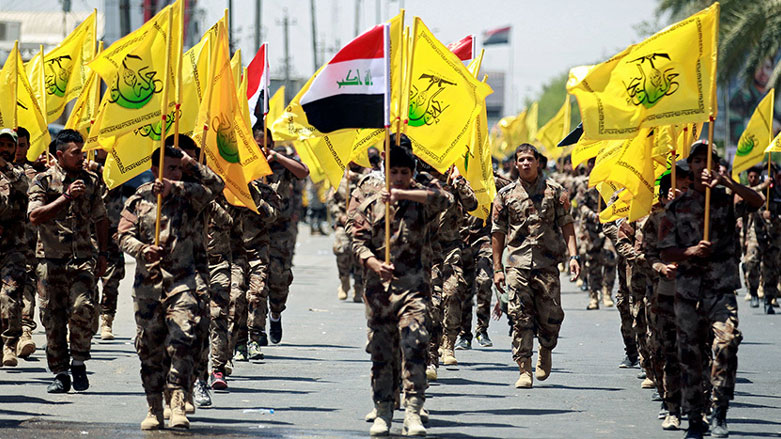Militias new threat to journalists in Iraq, Syria as IS fight draws to an end

ERBIL, Kurdistan Region (Kurdistan 24) – The Committee to Protect Journalists (CPJ) on Thursday warned that the defeat of the Islamic State (IS) does not guarantee the safety of journalists in Iraq and Syria as militias see a rise in power and influence.
Since the emergence of the extremist group in northern Iraq and Syria in 2014, 38 journalists were killed, with at least eight missing, and others forced underground to protect their families and their lives.
The CPJ expressed concerns that militias, political pressure, censorship, and sectarianism would now pose the biggest threat to journalists in both countries.
Ragaz Kamal, co-founder of the local Iraqi human rights organization 17Shubat for Human Rights, told CPJ that journalists in Iraq face a threefold threat from “armed groups that have gained political cover, like the [Popular Mobilization Forces], political parties, and the authorities because of their job.”
“None of these groups tolerate criticism, and they are rarely held accountable for their actions against journalists,” he added.
Rahman Gharib, the coordinator of the Iraqi press freedom organization Metro Center for Journalist Rights and Advocacy, recalled the brutal murder of Kurdistan TV cameraman Arkan Sharifi at the hands of Iranian-backed Shia Hashd al-Shaabi militias.
“Not only do militias threaten journalists, [but] they also identify them on a sectarian basis as Sunni, Shia, Kurds, Arabs,” Gharib said. “Journalists are threatened, harassed, and sometimes killed.”
On Oct. 30, Sharifi was stabbed to death after armed men broke into his home in the city of Daquq, in the governorate of Kirkuk, murdering him in front of his family.
In the aftermath of Iraqi forces and Iranian-backed Shia Hashd al-Shaabi militia’s assault on Kirkuk and other disputed territories, Kurdish media, including Kurdistan 24, has been banned and targeted for its coverage of developments.
“Iraqi journalists are already reporting on some of the most dangerous conditions worldwide,” said CPJ Middle East and North Africa Program Coordinator Sherif Mansour from Washington, DC back in November.
In Syria, militias, many of whom are backed by Tehran, also present a risk to journalists.
“I don't think the end of [IS’] presence in Syria will bring any opportunities for Syrian journalists. Threats against journalists will worsen,” Abdalaziz al-Hamza, co-founder of the citizen journalist group Raqqa is Being Slaughtered Silently (RBSS), said.
“Armed groups remain the main threat to journalists, although the level of threat posed to them changes from one armed group to the next.”
Editing by Karzan Sulaivany
